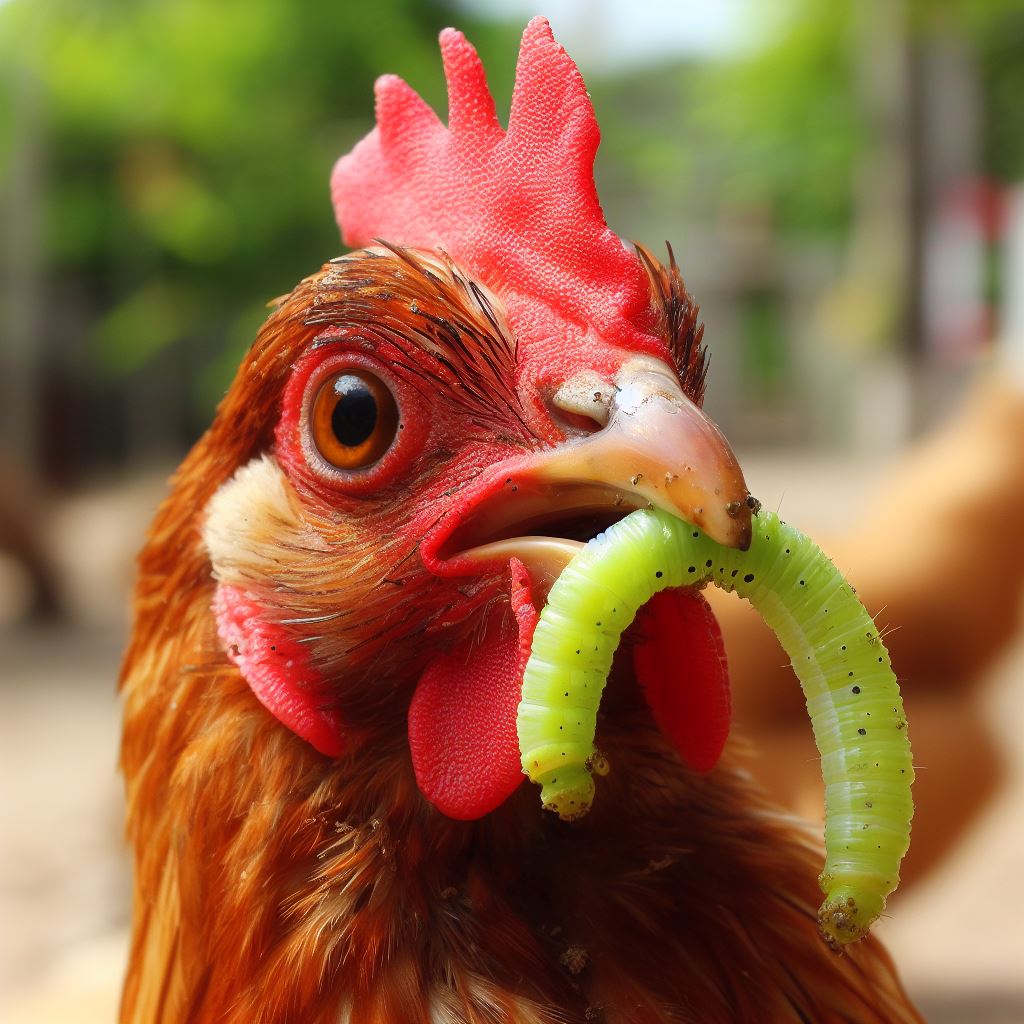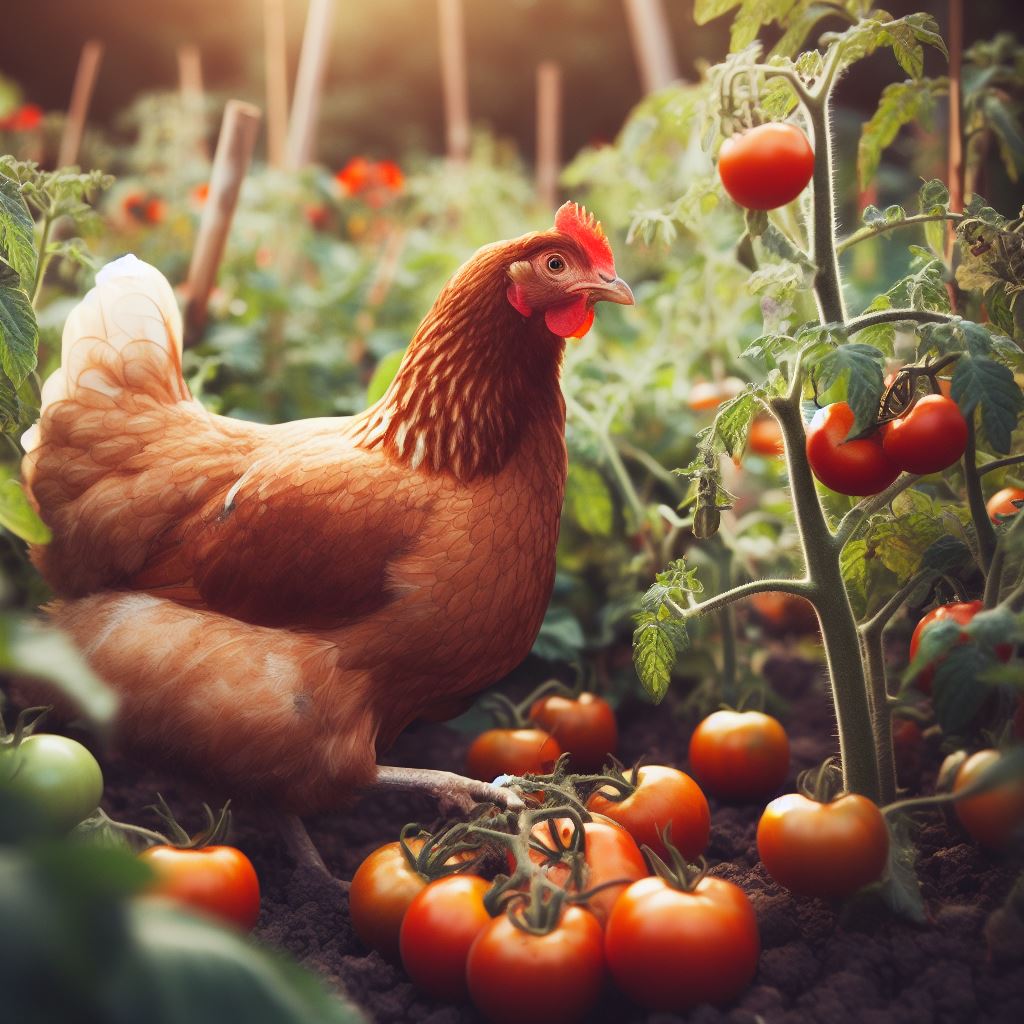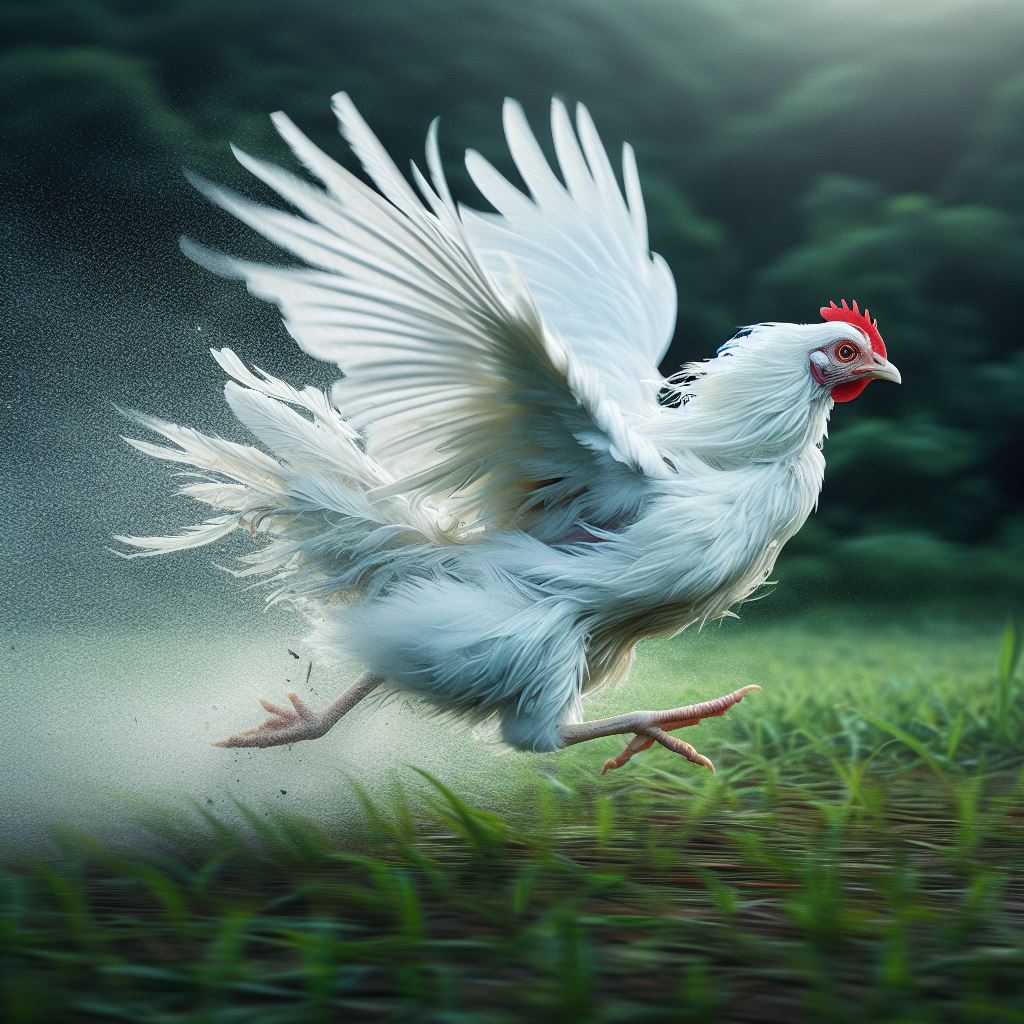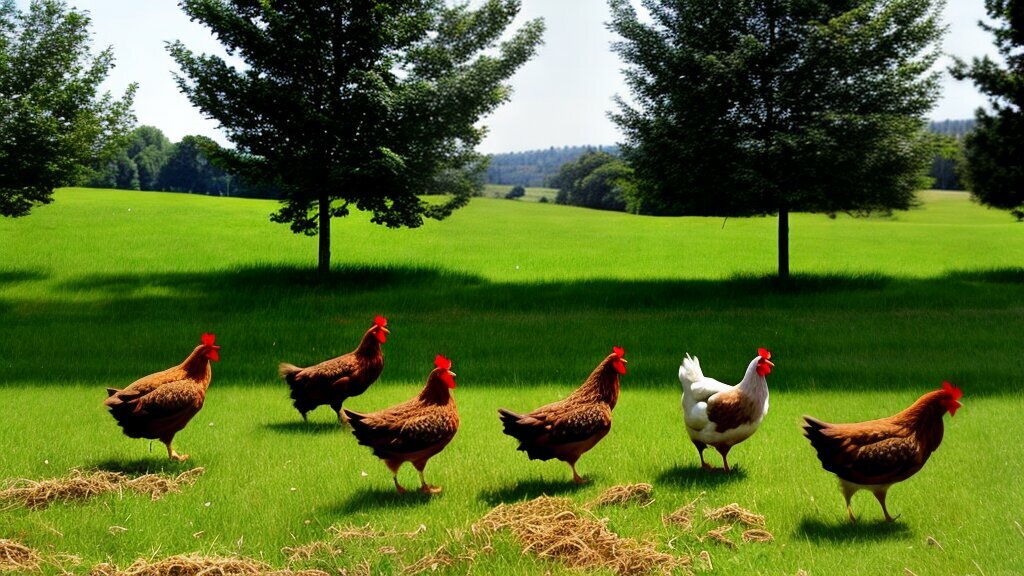Do Chickens Eat Hornworms? Organic Hornworm Elimination

Table of content:
Do Chickens Eat Hornworms? Chickens make great natural pest control for hornworms and other garden pests. As omnivores, chickens relish protein-packed insects like hornworm larvae. Letting chickens forage in your vegetable garden allows them to control hornworms and get valuable nutrients. With some planning, chickens can protect crops from hornworm damage.
Key Takeaways:
- Chickens eagerly consume hornworms and other larvae infesting gardens.
- Provide chickens access to garden areas to let them hunt hornworms.
- Monitor for over-foraging and damage to vegetable plants.
- Time chicken foraging strategically around pest cycles.
- Supplement diet with calcium for eggshell strength.
Hornworms, the larvae of hawk moths, can devastate tomatoes, potatoes, peppers, and other solanaceous crops. These large green caterpillars blend in well among plant leaves and can quickly defoliate plants. An organic approach to controlling these voracious pests is enlisting chickens.
 Do Chickens Search Out and Eat Hornworms?
Do Chickens Search Out and Eat Hornworms?
Chickens relish insects and worms of all kinds, making them effective hunters of hornworms. As natural omnivores, chickens forage for a varied diet including seeds, vegetation, and protein sources like insects.
In particular, chickens seize upon caterpillars and larvae as nutritious snacks. The fat and protein offer an excellent nutritional boost. Chickens will actively search out and consume any hornworms infesting the garden.
Free-ranging chickens allowed to forage in the garden can provide natural hornworm control. They search through foliage hunting for movement and pounce on any larvae discovered.
With a diverse diet and ability to hunt pests, chickens are a big advantage for an organic garden with hornworm issues.
Encourage Chickens to Forage for Hornworms
Chickens can help reduce or eliminate hornworms, but they do need some help to forage effectively. Here are some tips:
- Give chickens access to the garden area during times of hornworm activity.
- If possible, allow chickens to free range. Erect temporary fencing to protect sensitive plants.
- Concentrate foraging in areas with the worst infestations. Chickens will quickly clean up hornworms.
- Avoid over-foraging. Hungry chickens may damage crops. Provide supplemental feed.
- Time foraging strategically around the hornworm life cycle. Target early instar larvae before they damage plants.
- Monitor for damage and restrict access if chickens are harming plants.
- Maintain proper nutrition, especially calcium for egg-laying hens. Insects alone won’t provide complete nutrition.
With some careful planning, chickens can provide an effective biological control for hornworms. Always monitor and adjust their garden access to balance pest control benefits and potential plant damage.
The Hornworm Life Cycle
To time chicken foraging for maximum hornworm control, it helps to understand the pest’s life cycle:
- Eggs – Laid on food plant leaves in spring, first hatching into larvae in early summer
- Larvae – Feed voraciously, shed skin and grow for 2-6 weeks through 5+ instars
- Pupae – Larvae stop feeding and form cocoons to transform into adult moths
- Adult moths – Emerge to mate and lay eggs, completing the cycle
Key times to target hornworms with chicken foraging:
- Spring: Before eggs hatch, remove and discard any hornworm egg clusters found.
- Early-mid summer: Allow chickens to forage for young larvae before they damage plants.
- Fall: Remove cocoons and pupae from garden debris to prevent overwintering.
Timing chicken foraging strategically interrupts the hornworm life cycle for ongoing control.
Other Natural Predators of Hornworms
In addition to chickens, other natural predators help control hornworm populations:
| Predator | Method |
|---|---|
| Parasitic wasps | Lay eggs inside hornworm larvae, eventually killing the host |
| Ants | Attack young hornworms, consuming eggs |
| Tachinid flies | Lay eggs on larvae, maggots consume host after hatching |
| Ladybugs | Adults and larvae feed on eggs; larvae eat small caterpillars |
| Paper wasps | Catch and dismember caterpillars to feed larvae |
| Lacewings | Larvae pierce and feed on eggs and small larvae |
| Birds | Consume larvae and pupae |
| Vertebrate predators | Feed on larvae, pupae, adults (frogs, lizards, rodents, etc.) |
This diversity of predators provides natural checks on hornworm populations. Avoid broad-spectrum insecticides that could harm beneficial insects.
 What Do Hornworms Turn Into?
What Do Hornworms Turn Into?
Hornworm larvae stop feeding and form cocoons after reaching full size. Inside the cocoon, larvae undergo metamorphosis to transform into an adult moth. Common species include:
- Tomato hornworm – Turns into five-spotted hawkmoth
- Tobacco hornworm – Becomes Carolina sphinx moth
- Agrius cingulata – Transforms into pink-spotted hawkmoth
Removing larvae and cocoons from your garden helps break their life cycle. Chickens happily assist by consuming the larvae! Be sure to till garden debris deep into the soil to control overwintering pupae.
Can Chickens Eat Hornworms? Diet and Nutrition Tips
Chickens can safely eat hornworms as part of their omnivorous diet. However, provide the following to keep chickens healthy:
- Supplemental feed – Layer feed, chick starter, etc. Do not rely solely on foraged insects.
- Calcium source – For strong eggshells. Dust-bathe area, oyster shell, limestone chips, etc.
- Fresh water – Especially important for egg-laying hens.
- Treats – Fruits, veggies, seeds, greens, yogurt, etc. Keeps chickens interested in foraging.
Monitor hens for signs of malnutrition like weakened eggshells. Adjust diet as needed and limit garden access if chickens are damaging plants.
FAQs About Chickens Eating Hornworms
What chickens are best for eating hornworms?
Foraging breeds like Rhode Island Reds, Plymouth Rocks, and Orpingtons do well hunting hornworms. Lightweight birds can maneuver through foliage. Lean breeds like Leghorns cover ground efficiently.
Will chickens eat tomato hornworms?
Yes, chickens happily consume tomato hornworms and their large green larvae. Allow access once fruits start forming to avoid damage.
What are the signs of hornworm damage?
Watch for chewed and defoliated leaves, especially tomatoes, peppers, and potatoes. Larvae blend in but leave dark droppings on plants.
Do hornworms sting or bite?
Hornworms have no stingers or venom and do not bite or harm chickens that eat them. Their only defense is camouflage.
Are tobacco hornworms toxic to chickens?
No, the tobacco hornworm will not poison chickens or cause ill effects. However, limit access to tobacco plants to prevent plant damage.
Conclusion
Allowing chickens to forage for hornworms and other garden pests is an enlightened, natural approach to insect control. With some planning and monitoring, chickens can effectively reduce hornworm populations while enjoying a nutritious, protein-packed treat.
By unleashing your flock on garden hornworm infestations, you can reap bountiful harvests without resorting to insecticides.
Welcome. I’m Adreena Shanum, the proud owner of this website, and I am incredibly passionate about animals, especially poultry. I founded adreenapets.com as a labor of love, stemming from my desire to share my knowledge and experiences with poultry enthusiasts worldwide.





